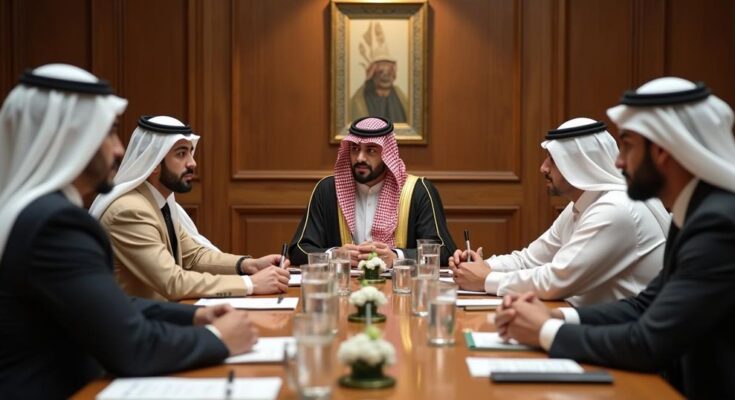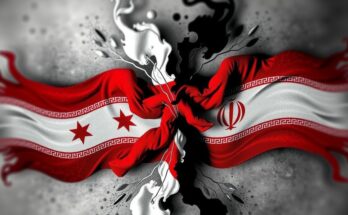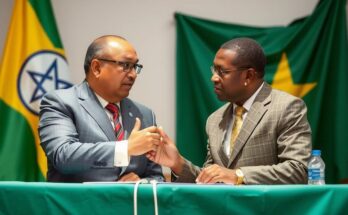Abbas Araghchi, the Iranian Foreign Minister, met with Houthi official Mohammed Abdelsalam in Muscat as part of a diplomatic tour addressing conflicts in the Middle East. The discussions involved regional tensions and the need for an immediate end to Israeli actions in Gaza and Lebanon. Araghchi reiterated Iran’s preparedness for war while advocating for peace.
On Monday, Iranian Foreign Minister Abbas Araghchi held discussions in Muscat with Mohammed Abdelsalam, a senior figure of Yemen’s Iran-backed Houthi movement. This meeting is part of Araghchi’s extensive diplomatic tour through the region aimed at consolidating ties with allies amidst escalating tensions following Israel’s threat to retaliate against an Iranian missile offensive. The Iranian foreign ministry showcased images of this meeting, which emphasized the collaboration with the Houthi administration. While specific details regarding the discussions were not disclosed, it was reported that Araghchi also conferred with Oman’s Foreign Minister, Sayyid Badr al-Busaidi, focusing on conflict developments in Lebanon and Gaza, where Israeli forces are engaged with Hezbollah and Hamas. Statements from Iran’s foreign ministry underscored their call for an immediate cessation of aggressive actions by Israel. Araghchi’s diplomatic itinerary included prior visits to Baghdad, Qatar, and Saudi Arabia, where he emphasized the importance of diplomacy in resolving regional conflicts, particularly aiming at establishing a cease-fire in the ongoing strife in Gaza and Lebanon. His visit to Muscat followed the firing of nearly 200 missiles at Israel by Iran in early October, which was cited as retaliation against the killings of Iranian-aligned militant leaders and a general in the Revolutionary Guards. During this tour, Araghchi reiterated Iran’s readiness for potential conflict, stating that while Iran is prepared for war, its preference remains for peace.
The political landscape of the Middle East has long been characterized by complex relationships among regional powers, notably Israel, Iran, and various militant groups. The Houthis in Yemen, backed by Iran, form part of a broader ‘axis of resistance’ alongside Hezbollah and Hamas, opposing Israeli actions in the region. Amid rising tensions due to recent conflicts involving Israel and these groups, diplomatic efforts are being made by Iran to reinforce alliances and explore avenues for peace. The Iranian missile attack on Israel and the subsequent response from various Middle Eastern nations highlight the fragile stability of the region, making diplomatic discussions particularly crucial at this juncture. Meetings such as the one between Araghchi and Abdelsalam serve not only to express solidarity but also to coordinate responses and strategies among these aligned factions.
The meeting between Iranian Foreign Minister Abbas Araghchi and Houthi representative Mohammed Abdelsalam underscores Iran’s strategic efforts to consolidate alliances amidst rising tensions with Israel. This diplomatic engagement follows a significant Iranian military response to perceived aggressions in the region. Discussions involving the cessation of hostilities in Gaza and Lebanon further emphasize diplomacy as a potential means to mitigate conflict in a highly volatile environment. Araghchi’s repeated assertions of Iran’s inclination towards peace, despite military readiness, reflect the delicate balance the nation seeks to maintain in regional geopolitics.
Original Source: www.voanews.com




